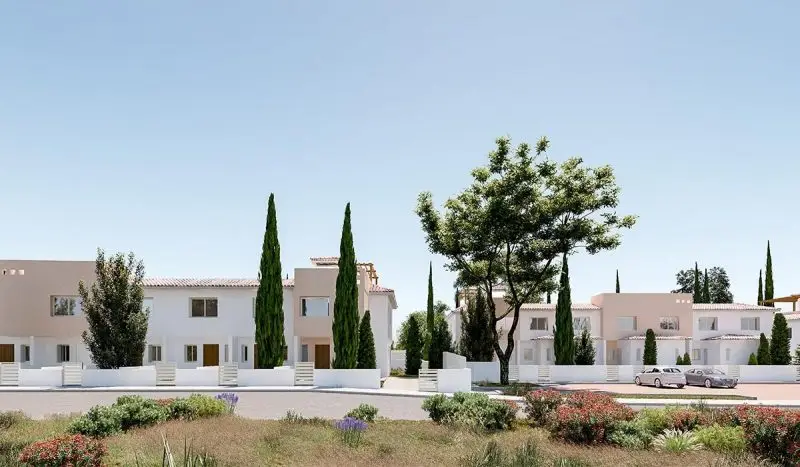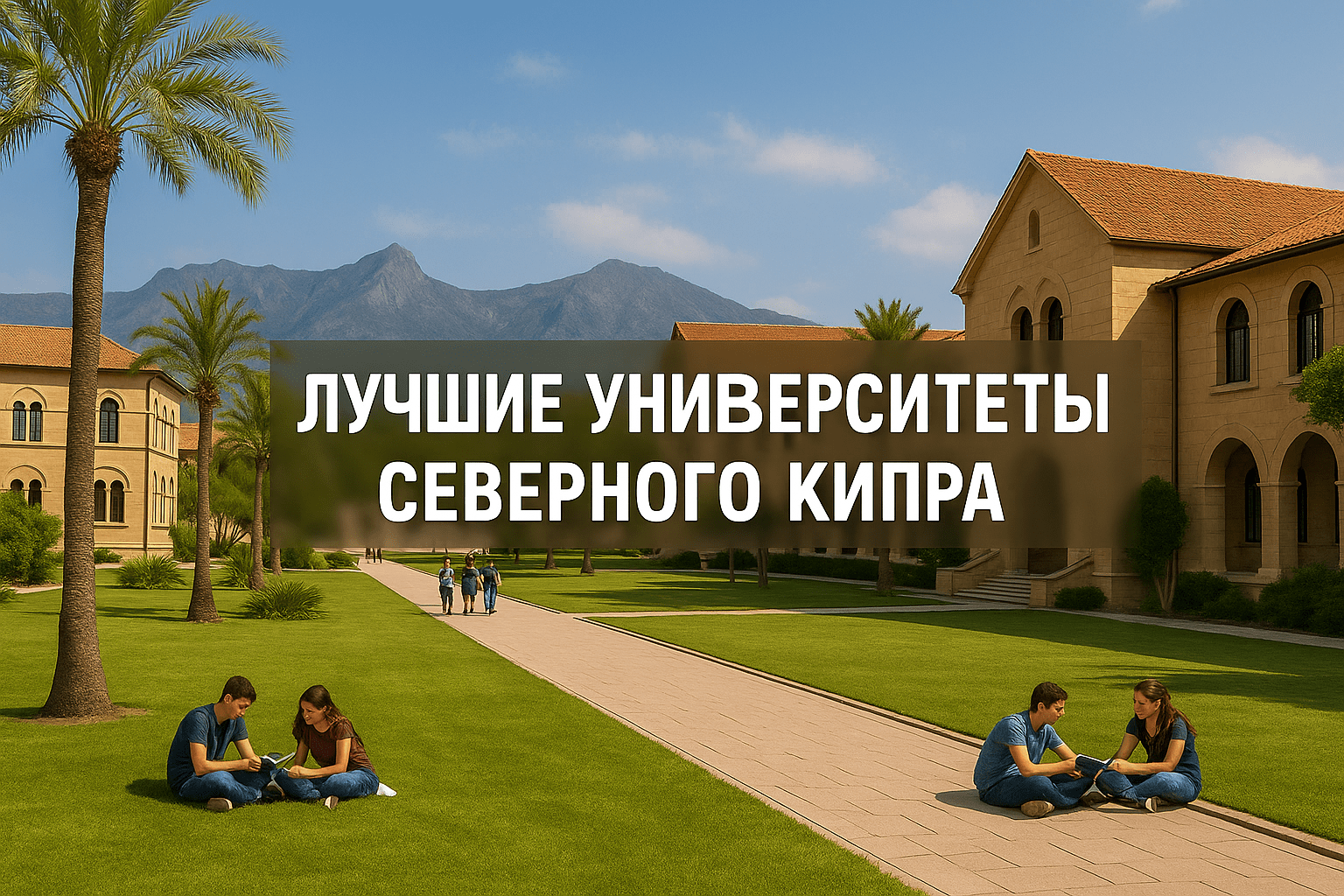
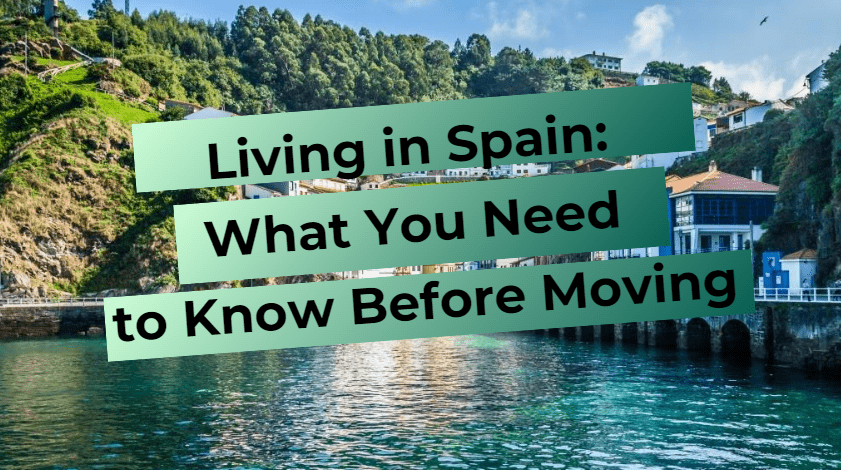

Moving to Spain is not just a change of residence, it's an adventure full of new opportunities and discoveries. Think about what it's like to wake up to the gentle sun, enjoy the aroma of fresh paella and walk along the picturesque streets of ancient cities. Spain attracts with its beaches, rich culture and warm climate, and many dream of living in this country. But before you pack your bags, it's important to understand the nuances that can make your move more comfortable and successful.
Here are a few key points that we will discuss in this article:
- Legal aspects and obtaining a residence permit in Spain.
- Taxes and financial issues you will have to deal with.
- Housing issues: purchase or lease real estate.
- Health care and health insurance in Spain.
- Education and opportunities for children and adults.
- Cultural sensitivities and tips for adaptation.
- How to prepare for the move: a checklist of things to do
Now let's take a closer look at what you need to know before realizing your dream of living in Spain.
Legal aspects of relocation
Let's start with the legal aspects, as this is one of the most important steps on the way to a new life. Moving to Spain requires understanding the visa requirements and obtaining the necessary residency permits. If you plan to stay in the country for more than 90 days, you will need to apply for a visa. For example, for those who want to work or study, there are many types of visas such as a work visa or student visa.
When I first thought about moving, I was a little overwhelmed by the amount of information out there. But fortunately, I found a lot of resources and forums where people shared their experiences. A friend of mine who moved to Spain a few years ago told me how he got his Spanish residence permit. He submitted documents to the consulate, and after a couple months he was approved for a visa. The main thing is to collect all the necessary documents in advance and follow the instructions.
Registration in Spain and obtaining NIE
After I got my visa, the next step for me was to register in Spain and get my NIE (foreigner identification number).
Why do you need an NIE?
Obtaining an NIE (Foreigner Identification Number) is one of the first and most important steps after obtaining a visa. This number is necessary for many everyday activities such as:
- Opening a bank account
- Signing a rental contract
- Obtaining health insurance
- Registration of tax documents
Without an NIE, many administrative processes can become difficult, so it's important to take care of it right away.
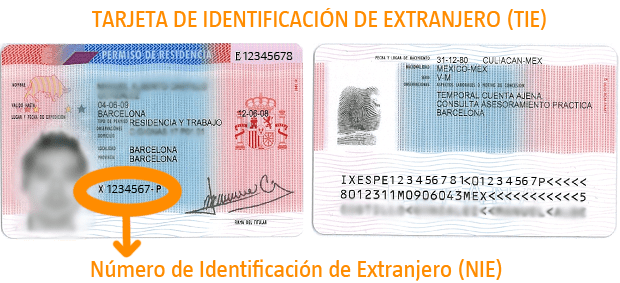
The process of obtaining an NIE
To get an NIE, I had to go to the local police station or the office for foreigners (Oficina de Extranjería). I knew that the process could take some time, so I decided not to put it off.
Here are the steps I took:
Collection of necessary documents:
- Passport (original and copy)
- Completed EX-15 form (can be downloaded from the website)
- Documents supporting the reason for requesting an NIE (e.g., a rental contract or a letter from an employer)
Make an appointment:
- Some regions require an appointment in advance. I made an appointment online, which saved me time.
Office visit:
- When I came to the office to get my NIE, I was a little worried, but in the end everything went smoothly. I came with the necessary documents, and in a couple of hours I already had the coveted number. Don't forget to take copies of all the documents with you - it can speed up the process considerably.
Estimated costs
Obtaining an NIE in Spain is generally not an expensive process. Here are the approximate costs I have encountered:
- State duty: about $12 (depending on the region)
- Copies of documents: about $5 (if you do them in the office)
- Transportation costs: $5 to $15, depending on the distance to the office
Thus, the total cost of obtaining an NIE was approximately $22-32.
Taxes and financial matters
Moving to Spain is as much about enjoying the warm climate and rich culture as it is about understanding the local tax system. Taxes in Spain can be very different from what you are used to and it is important to know in advance what compulsory payments to expect, especially if you plan to buy property or work in the country. This table compiles information on key taxes and fees related to real estate and income to help you better prepare for your new start.
| Type of tax/payment | Description | Rate/Cost |
|---|---|---|
| Property transfer tax (ITP) | Payable on the purchase of real estate. The rate varies depending on the region. | 6% - 10% of the value of the property |
| Annual property tax (IBI) | Mandatory tax for property owners, calculated on the basis of cadastral value. | 0.4% - 1.1% of cadastral value |
| Capital gains tax (Plusvalía) | Paid on the sale of real estate, calculated based on the increase in value. | Depends on location and time of ownership of the property |
| Tax on rental income | If you plan to rent out the property, income tax must be paid. | 19% for residents; 24% for non-residents |
| Notary fees | Payment for the services of a notary when executing a sale and purchase transaction. | Typically ranges from 0.1% to 0.5% of the value of the property |
| Registration fees | Payment for registration of real estate in the Register of Property. | Typically ranges from 0.1% to 0.5% of the value of the property |
| Real estate agency services | If you use an agency to make the purchase, they may charge a commission. | Typically 3% to 5% of the value of the property |
Understanding property taxes and other compulsory payments in Spain is an important step for a successful move and adjusting to your new life. When I bought my first apartment in SpainI was pleasantly surprised at how transparent and clear the process was. By preparing in advance and understanding the tax system, you can avoid unpleasant surprises and enjoy life in this beautiful country.
Bank accounts and money transfers
Opening a bank account in Spain is one of the key steps to simplify your financial life in a new country. This process not only allows you to manage your finances conveniently, but is also essential for receiving your paycheck, paying bills and making other financial transactions.
The process of opening a bank account
Opening a Spanish bank account is quite easy if you have the necessary documents. Here are the steps you need to take:
Collection of necessary documents:
- NIE (alien identification number): this is a mandatory document for opening an account.
- Passport: original and a copy.
- Document confirming the address of residence: this could be a utility bill or a lease agreement.
- Additional documents: some banks may ask for a certificate of income or proof of employment.
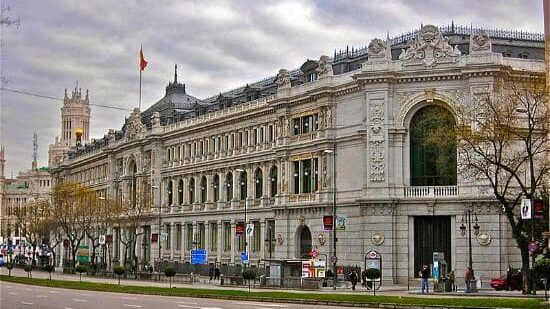
Choice of bank:
- There are many banks in Spain such as Banco Santander, BBVA, CaixaBank and others. Compare the conditions, fees and services offered by different banks.
Make an appointment:
- It is recommended to make an appointment in advance to avoid waiting. Some banks also offer the possibility to open an account online.
Bank visit:
- When I opened my account with a Spanish bank, the employee was very friendly and helped me understand all the nuances. I filled in the necessary forms and submitted the documents.
Estimated costs
- Minimum deposit: Many banks require a minimum deposit to open an account, which can range from $0 to $100, depending on the type of account.
- Service fees: Some banks may charge a monthly account maintenance fee, which ranges from $5 to $15. However, many banks offer free accounts if certain conditions are met, such as regular deposits into the account.
- Transfer fees: Transfers between accounts within the same bank are usually free, while international transfers can cost between $10 and $30, depending on the bank and the amount transferred.
Opening a bank account in Spain is an important step towards successful adaptation in a new country. With the right documents and a bit of preparation, the process is quick and hassle-free. Having an account will not only make it easier to manage your finances, but it will also open up access to many services that will make your life in Spain more comfortable.
Housing
Moving to Spain often starts with the question of housing. Here you have two main options: buying a real estate in Spain or renting a home. Both options have their pros and cons, and the choice depends on your personal circumstances and future plans.
Buying real estate: process and specifics
If you decide to buy real estate, you should know that the process can be quite complicated, but with the right approach, it becomes quite manageable. The first thing you need to do is to determine your budget. Real estate prices vary from region to region. For example, the Costa Blanca and Costa del Sol offer a variety of properties from inexpensive apartments to luxury villas.
When I was looking for an apartment, I was amazed by the variety of offers. I found a cozy studio in Alicante that was perfect for me in terms of price and location. It is also important to consider additional costs such as notary fees, property transfer taxes and agent's services. I recommend consulting a lawyer beforehand to avoid unpleasant surprises.
Renting a home: tips and important aspects
If you're not ready to buy, renting housing in Spain is also a great option. It allows you to get a taste of life in different regionsBefore making a final purchase decision. When renting a home, it is worth paying attention to the contract. Usually the lease is for a period of one year or more, but you can also find short-term options.
When I rented my first apartment in Madrid, I encountered several nuances. For example, it was important to check whether utilities were included in the rent. I was pleasantly surprised to find out that everything was included in my apartment and I didn't have to worry about additional costs. Also, be sure to check the condition of the apartment before signing the contract. I always recommend taking pictures to avoid misunderstandings with the landlord.
Health care
Now let's talk about healthcare in Spain. This country is known for its high quality health care system, both public and private. If you are planning to move, it is important to understand health insurance and access to medical services in advance.
Public and private health care systems
Spain offers all residents access to a public medical system that is funded by taxes. This means that most medical services are free or at a very low cost. However, you need to be registered in the social security system to be eligible.
If you prefer faster and better service, it is worth considering private health insurance in Spain. I opted for private insurance myself, and it was a very good decision. Thanks to it, I was able to access the best clinics and specialists without long waiting lists, which is very important when it comes to health.

Registration of health insurance
Taking out health insurance in Spain is a fairly simple process. You will need to choose an insurance company and find the right plan based on your needs. I recommend paying attention to reviews from other clients and comparing several offers before making a decision.
When I applied for my insurance, I was pleasantly surprised by the variety of plans and prices. In the end, I chose a package that covered all basic medical services, including dental care and checkups. This gave me the confidence that my family and I would always be well protected.
Access to medical services in Spain is generally very good and you won't have to wait long for an appointment. You can use online services to make an appointment with a doctor, which makes the process much easier.
Education
Education in Spain is another important topic, especially if you have children or plan to study on your own. The Spanish education system includes both public and private schools, as well as international institutions offering various programs.
Education system in Spain
The education system in Spain is divided into several levels: primary, secondary and higher education. Children start school at the age of 6, and compulsory education continues until the age of 16. In elementary school, the emphasis is on basic subjects such as math, language and literature, as well as art and physical education.
When my son went to school, I was a little nervous because it was a new language and a new culture. However, once we got to know the teachers and other parents, everything fell into place. The learning process in Spain is very interaction and engagement oriented, which I really liked.
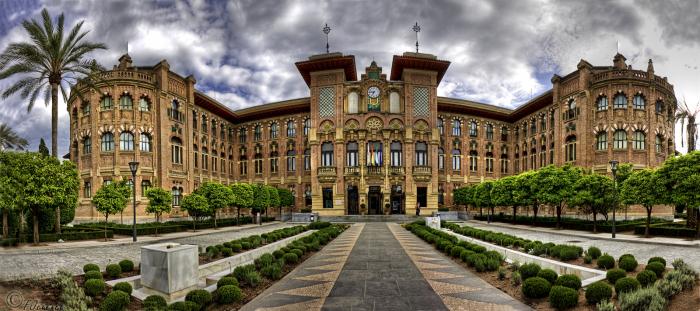
Choosing schools and universities for children and adults
When choosing a school, it is important to consider not only the location, but also the approach to learning. There are many international schools in Spain that offer instruction in English, French and other languages. This can make it much easier for your child to adapt, especially if they do not speak Spanish.
If you plan to continue your studies at university, Spain offers a wide range of higher education institutions. Many universities have international programs and courses in English. I myself considered applying for a master's degree at one of the universities in Barcelona and was pleasantly surprised by the level of education and the variety of programs.
Peculiarities of education in international schools
The learning process in international schools often differs from traditional Spanish schools. For example, many of them use methods based on project-based learning and active student involvement. This creates a more dynamic atmosphere and allows children to develop critical thinking and creative skills.
Culture and adaptation
Moving to a new country is not only about legal and financial issues, but also about cultural adaptation. The Spanish mentality and cultural peculiarities can be very different from what I am used to.
Spanish mentality and cultural characteristics
Spaniards are known for their warm and friendly nature. They value socializing and spending time with family and friends. This may be unusual for those who are used to a stricter daily routine. For example, Spaniards tend to have long lunches and parties that can last late into the night.
When I was at a Spanish party for the first time, I was amazed by the atmosphere. People were laughing, dancing and enjoying time together. I quickly realized that it was important not only to work, but also to enjoy life. This was a real eye-opener for me - living in Spain has taught me to appreciate moments of joy and socializing.
Language barrier: how to adapt and learn a language
The language barrier is another aspect I had to deal with. Although many Spaniards speak English, knowing Spanish makes life much easier. I recommend enrolling in language courses or finding a language partner to practice speaking.
When I started learning Spanish, I faced some difficulties, but with time it became easier. I even started talking to my neighbors, and this helped me not only to improve my language, but also to make new friends. Each conversation brought me closer to understanding the culture and mentality of the Spanish people.
Daily life: shopping, transportation, entertainment
Life in Spain is filled with unique cultural characteristics that may be different from what you are used to. Understanding these aspects will help you adapt more easily and enjoy your new way of life.
Shopping
In Spain, stores and supermarkets are usually open from 9:00 to 21:00, but many close for siesta from 14:00 to 17:00. This may be unusual if you are used to 24-hour shopping.
Products: Food prices can vary from region to region, but on average:
- Bread: $1 to $2 per loaf.
- Milk: $1 - $1.50 per liter
- Eggs: $2 to $3 per dozen.
- Chicken fillet: $5 - $8 per kilogram
- Fruits and vegetables: $2 - $5 per kilogram depending on season and species

Transport
Spain offers a well-developed transportation system, including subways, buses and trains, making getting around the cities convenient and affordable.
- Metro: In major cities, such as Madrid and Barcelona, the metro is one of the fastest and most convenient ways to get around. A single ride ticket costs around $1.50 to $2.00 and a monthly pass costs between $50 and $70 depending on the zone.
- The buses: City buses are also available and have similar pricing. A bus ticket costs approximately $1.50.
- Trains: High-speed trains (AVE) are available for intercity travel. Ticket prices range from $30 to $150 depending on distance and departure time.

Entertainments
Spain is known for its cultural events and entertainment. Visiting museums, theaters and concerts is a great way to experience the local culture.
- Museums: Many museums offer free admission on certain days or evenings. An entrance ticket to popular museums, such as the Prado in Madrid, costs about $15.
- Movie: A movie theater ticket costs about $8 to $12.
- Restaurants: Dinner in a restaurant can range from $15 to $50 per person depending on the type of establishment. Lunch menus are often offered at a lower price, from $10 to $20.
Daily life in Spain offers many opportunities to enjoy culture and convenience. With shopping, transportation and entertainment options, you can easily adapt and enjoy every moment in this beautiful country.
How to prepare for the move: a checklist of things to do
Create a checklist of things to do before you move. Include items such as gathering documents, finding a place to live, getting health insurance, and registering with the tax authorities. This will help you avoid missing important items and make the process more organized.
| item | Description | Approximate cost (in US dollars) |
|---|---|---|
| Collecting documents | Prepare all necessary documents: passport, birth certificates, diplomas, medical certificates, etc. | 0 (if you already have all the documents) |
| Obtaining NIE | The Alien Identification Number is required for many administrative processes. | $12 (state duty) |
| Search for housing | Decide whether you will rent or buy a home. Research neighborhoods and prices in the real estate market. | Rent: $500 - $1500 per month; Purchase: from $100,000 |
| Registration of health insurance | Find the right health insurance plan that will cover your needs. | $50 - $200 per month (depending on plan) |
| Registration with tax authorities | Take care to register with the tax authorities to avoid tax problems. | 0 (free if you register on your own) |
| Opening a bank account | Open a Spanish bank account to manage your finances. | Minimum deposit: $0 - $100; Service: $5 - $15 per month |
| Transportation of belongings | If you plan to move your belongings, find a moving company and get a quote. | $1,000 - $5,000 (depending on volume and distance) |
| Language learning | Start learning Spanish to make the adjustment easier. | Courses: $50 - $300 per month (depending on format) |
| Job search | If you plan to work, start looking for job openings and update your resume. | 0 (if you are searching on your own) |
| Budget planning | Make a budget for the first few months of life in Spain, taking into account all expenses. | Depends on your needs and lifestyle |
When I was preparing to move, I made a list of all the things to do and even categorized them. This made the process much easier and helped me feel more confident. Each item completed added to my confidence that I was on the right track.
Living in Spain is a wonderful opportunity to discover new horizons, enjoy the warm climate and experience a rich culture. Despite all the challenges of moving, the experience of living in this country is worth all the effort. I am sure that everyone who decides to take this step will find their place here and find happiness, as I did.
Moving to Spain will require a visa, depending on the purpose of the move: work, study, resident, etc.
The cost of living varies by region, but overall Spain is considered relatively affordable compared to other European countries.
You can rent or buy property through agencies, special online platforms or private listings.
Residents pay income, property and other mandatory taxes. Tax rates vary by region and income.
Spain offers public and private medical services. Public health care is available free of charge or at low cost to residents.
Learning the language, experiencing the local culture and socializing with locals will help you adapt faster.
You will need a visa, passport, health insurance, accommodation documents and financial guarantees.
Spaniards value family, friendliness and respect for tradition. The rhythm of life here is more relaxed than in other countries.
What visas do I need to move to Spain?
Moving to Spain will require a visa, depending on the purpose of the move: work, study, resident, etc.
What is the cost of living in Spain?
The cost of living varies by region, but overall Spain is considered relatively affordable compared to other European countries.
How to find a place to live in Spain?
You can rent or buy property through agencies, special online platforms or private listings.
What are the taxes for residents of Spain?
Residents pay income, property and other mandatory taxes. Tax rates vary by region and income.
How does the health care system work in Spain?
Spain offers public and private medical services. Public health care is available free of charge or at low cost to residents.
How do you adapt to life in Spain?
Learning the language, experiencing the local culture and socializing with locals will help you adapt faster.
What documents do I need to move to Spain?
You will need a visa, passport, health insurance, accommodation documents and financial guarantees.
What cultural sensitivities are important to know before moving?
Spaniards value family, friendliness and respect for tradition. The rhythm of life here is more relaxed than in other countries.














